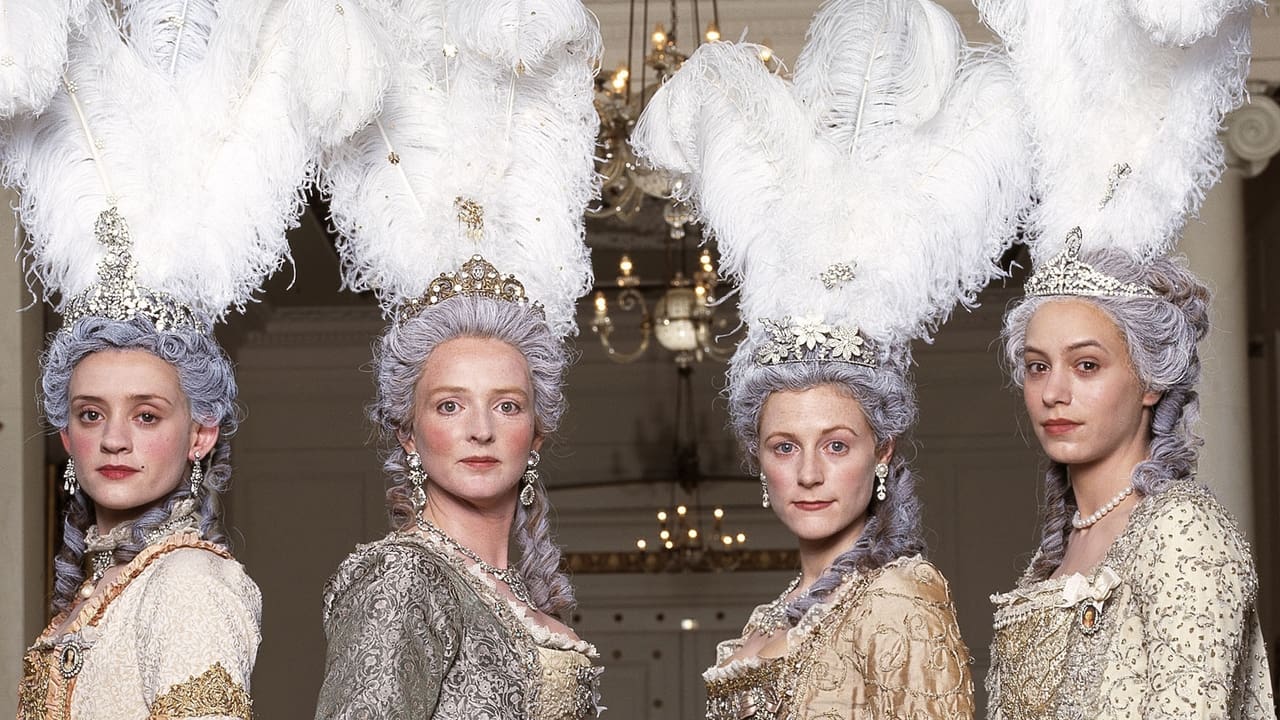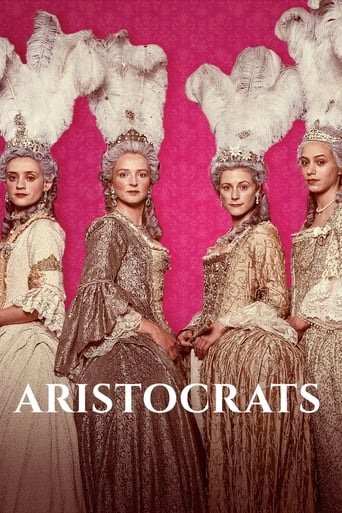StarDragyn
The first episode of this is somewhat similar to a Jane Austen style story, though it is set in the mid-late 1700s rather than early 1800s. After the first episode or two, it becomes generally more serious and more broad. The costumes are very different from Austen films (being set in the preceding era), but they are very beautiful and very accurate to the time period. The dresses are much more glamorous, even though the men look rather sillier in my opinion.I'm not sure how close this telling matches to the actual history of this family--I'm assuming there are at least some discrepancies--but even thinking it is at least based on real people and real stories makes it much more interesting to watch. To think that this wasn't simply invented by an author (no offense to Austen!) makes me much more tolerant of any lags or disagreeableness in "plot", since it's not supposed to be a contrived one. There are many, many characters, which may be hard for some people to keep track of who's who, and many decades are covered, so time sometimes passes in large chunks.The film is a drama and deals with some very serious issues, to a greater extent than Austen ever delved into. Much of it is somber, but not really depressing. The movie is less of a source of "entertainment" than Austen films, but it is a great look at another era and the story is intriguing enough to keep you wondering what will happen next. It does not leave you so much with the blissful smile of contentment and happily ever after that an Austen story provides, but I felt like I had gotten to know and feel for the main characters, and learned some things about history in the process. It's a great choice if you're interested in venturing into another time period, rather than the Regency (Austen) or the far more common Victorian (Dickens, etc) eras.This movie would be especially good for passing a lazy, rainy afternoon, when you'll feel more content with this milder sort of entertainment than what your expectations might be for a Friday night. Just get a cup of tea or cocoa and let yourself drift back to another time and world for a while.
parsifalssister
Rather true to the Lennox family history; many have described it as excellent in many ways, and it was. However, changing gears in the last of the six-part series with totally different performers as well as story lines, took the vote down one or two pegs for me. I was fascinated by the relationships between and among the different family factions and how they resolved each over the course of the series. Some of the characters were more sympathetic than others, and I especially took a fancy to Edward, Emily's son and Capt. Napier, Sarah's second husband.I will go after the book as it appears that even now we have aristocrats in the Lennox line these many years later and I'd like to know more about a family that created renegades, generals, politicians and romance.
style-2
"I remained convinced that our prestigious family with its significant connections could still hold sway over history." Thus spake Emily, Duchess of Leinster, in 1798, shortly before her son, the notorious and dashing Irish revolutionary, Edward Fitzgerald, was executed for the murder of a British soldier. The world they knew was rapidly changing, and, indeed, there was little, if *anything*, the Duchess or her aristocratic family held sway over anymore, except each other. But a few short years before, she and her sisters were among the most admired and privileged women on earth. The five sisters, Caroline, Emily, Louisa, Sarah and Cecilia, were the great-granddaughters of Charles II with his mistress, Louise de Keroualle, the Duchess of Portsmouth. Their grandfather, the king's illegitimate son, was Charles Lennox, 1st Duke of Richmond. His son, also Charles, became the 2nd Duke of Richmond. The 2nd Duke married an Irish woman, of whose background, both were deeply ashamed of and desperately tried to conceal. When their eldest daughter Caroline, an intelligent woman with a thirst for sophisticated pleasures, eloped with Henry Fox, 1st Baron Holland, the Duke and Duchess were mortified at her insubordination – marrying a politician against the wishes of her father brought swift judgement upon Caroline, and she was banished from her family. Caroline missed her family greatly and grieved over their estrangement, but from her home, Holland House (the same one on the Holland House liquor labels), she kept discreet correspondence with her sisters. When second eldest daughter, Emily, begged her parents to allow her to marry James Fitzgerald, 20th Earl of Kildare, an Irish statesman, the parents were aghast at the possibility of Irish blood (re-)entering their bloodline, but fearing another estrangement, they agreed to the marriage, partially because it was evident that the Earl deeply loved Emily, and partially because the Earl was extraordinarily wealthy. She had a son, Edward Fitzgerald, a celebrated United Irishman, whose dedication to Irish freedom would have been incomprehensible to his grandparents. Louisa, the third sister, married Thomas Conolly, a kind and loving man, had a brood of children and lived happily ever after. Fourth sister, Sarah, married badly, had an affair, a baby, a divorce, and complete social ostracism all in short order. Fifth sister, Cecilia, died in her teens. There was also a brother who became 3rd Duke of Richmond.Meticulously adapted from Stella Tillyard's masterpiece by the same name, *Aristocrats* is a story of magnificent scope and grandeur, but told without the usual gassy adoration of the British upper class. Its basis is not embellished reports and embroidered tales, but the massive archives of correspondence and household and historical records left behind by these women. It is as much a story of the sisters' love for each other and their families, as it is a historical drama, but the viewer never forgets that it is through the eyes of these women that we see the epic unfold. As with many epics, it makes short work of some of history's more momentous occasions, but that serves to keep the story focused on the sisters. The production values are top notch. With an excellent screenplay by Harriet O'Carroll, superb direction, and outstanding craftsmanship throughout, *Aristocrats* is as splendid a production as it is a story.

